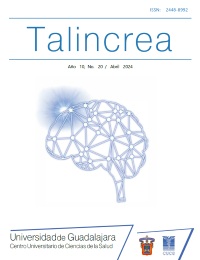CREATIVE GENIUS IN ARCHITECTURAL DESIGN
DOI:
https://doi.org/10.32870/talincrea.v11i2.200Keywords:
Creativity, architectural design, cognitive and affective elementsAbstract
The purpose of this work is to identify how innovative and creative architectural projects crystallize. Through life stories with interviews and autobiographies, information is collected from two renowned architects: one man and one woman. The results suggest that architectural creativity requires scientific foundations and is not only an intellectual act, but a phenomenon influenced by life experiences, personal sensitivity, and the cultural environment. It is also emphasized that creative genius is based on the ability to adapt and balance aesthetics with functionality, as well as the skill to integrate the variabilities of the context and the needs of the client. It is concluded that creativity in architecture is a formal object of study that demands a complex approach, both from the cognitive process and the affective side, since the creative process depends on the management between reality and mental processes. The findings could have implications for architectural education and the expansion of innovation and creativity in this profession.





